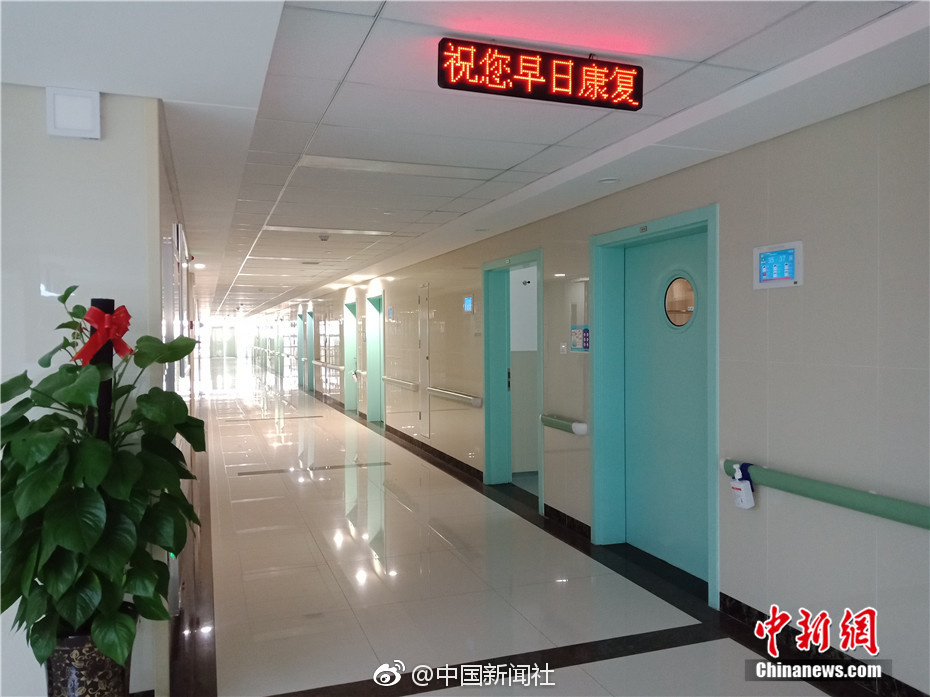
The five functional modules of the operating system are processor management, memory management, device management, file management and operation management. Processor management The most basic function of processor management is to process interrupt events. After configuring the operating system, various events can be processed.
The functions of the computer operating system include: processor management, memory management, device management, file management, job management and other functional modules. Processor management. The most basic function of processor management is to handle interrupt events. The processor can only detect interrupt events and generate interrupts and cannot process them.
Storage management is divided into several functions: storage allocation, storage sharing, storage protection, and storage expansion.Equipment management has the following functions: equipment allocation, equipment transmission control, and equipment independence. File management: file storage space management, directory management, file operation management, file protection.
The operating system should usually include the following five functional modules: (1) Processor management. When multiple programs are running at the same time, solve the problem of processor (cpu) time allocation. ( 2) Operation management. The program to complete an independent task and its required data constitute a task.
The function of the operating system is mainly reflected in the management of computer resources - microprocessors, memory, external devices, files and tasks. The operating system sets this management function into the corresponding program management module, and each management module is responsible for a certain function.That is, the five functions of the operating system.
The operating system has five functions: processor management: mainly controls and manages the work of the CPU. Storage management: mainly carry out memory allocation and management device management: mainly manage basic input and output device file management: responsible for the organization, storage, operation and protection of computer files, etc.

There are the following types of management systems: the management system of the finished product set. This kind of system is a stereotyped management system, which makes a small number of functional adjustments to the software through the parameter settings of the software.
Transaction Processing System (TPS): Operators and supervisors are used to input transactions, events, sort, list, merge updates, output detailed reports, lists and summaries, etc. Management Information System (MIS): Middle managers are used to input general transaction data and simple models to process routine reports.
Adgecal management system Academic management system is one of the most core management systems of the school, which is responsible for arranging and managing the school's teaching activities. It includes curriculum setting, teaching plan, teacher arrangement, examination management and other contents.
VMware vSphere: It is a virtualization management platform that can be used to manage virtual machines, storage and networks, etc. Nagios: It is an open source network monitoring system that can be used to monitor network devices, servers and applications, etc.
Financial subsystem: providing the function of financial management information; Decision support subsystem: make the logistics information system reach a higher level.
ERP management system brand Youyou, Jindie International Software, Wave Software, Dingjie Software, Zhenghang Software. Use friends.
1. System management refers to the information technology system that manages enterprises, and file management is one of the five major functions of the operating system.First, network management refers to the centralized management of resources on the network by network administrators through network management programs.
2. System Management regards organizational components as interrelated and interdependent systems, so it advocates applying the system concept to the management concept.
3. System management refers to the process of maintaining, managing and monitoring computer systems. As an important part of enterprise informatization construction, the importance of computer system management cannot be ignored.
PAGCOR online casino free 100-APP, download it now, new users will receive a novice gift pack.
The five functional modules of the operating system are processor management, memory management, device management, file management and operation management. Processor management The most basic function of processor management is to process interrupt events. After configuring the operating system, various events can be processed.
The functions of the computer operating system include: processor management, memory management, device management, file management, job management and other functional modules. Processor management. The most basic function of processor management is to handle interrupt events. The processor can only detect interrupt events and generate interrupts and cannot process them.
Storage management is divided into several functions: storage allocation, storage sharing, storage protection, and storage expansion.Equipment management has the following functions: equipment allocation, equipment transmission control, and equipment independence. File management: file storage space management, directory management, file operation management, file protection.
The operating system should usually include the following five functional modules: (1) Processor management. When multiple programs are running at the same time, solve the problem of processor (cpu) time allocation. ( 2) Operation management. The program to complete an independent task and its required data constitute a task.
The function of the operating system is mainly reflected in the management of computer resources - microprocessors, memory, external devices, files and tasks. The operating system sets this management function into the corresponding program management module, and each management module is responsible for a certain function.That is, the five functions of the operating system.
The operating system has five functions: processor management: mainly controls and manages the work of the CPU. Storage management: mainly carry out memory allocation and management device management: mainly manage basic input and output device file management: responsible for the organization, storage, operation and protection of computer files, etc.

There are the following types of management systems: the management system of the finished product set. This kind of system is a stereotyped management system, which makes a small number of functional adjustments to the software through the parameter settings of the software.
Transaction Processing System (TPS): Operators and supervisors are used to input transactions, events, sort, list, merge updates, output detailed reports, lists and summaries, etc. Management Information System (MIS): Middle managers are used to input general transaction data and simple models to process routine reports.
Adgecal management system Academic management system is one of the most core management systems of the school, which is responsible for arranging and managing the school's teaching activities. It includes curriculum setting, teaching plan, teacher arrangement, examination management and other contents.
VMware vSphere: It is a virtualization management platform that can be used to manage virtual machines, storage and networks, etc. Nagios: It is an open source network monitoring system that can be used to monitor network devices, servers and applications, etc.
Financial subsystem: providing the function of financial management information; Decision support subsystem: make the logistics information system reach a higher level.
ERP management system brand Youyou, Jindie International Software, Wave Software, Dingjie Software, Zhenghang Software. Use friends.
1. System management refers to the information technology system that manages enterprises, and file management is one of the five major functions of the operating system.First, network management refers to the centralized management of resources on the network by network administrators through network management programs.
2. System Management regards organizational components as interrelated and interdependent systems, so it advocates applying the system concept to the management concept.
3. System management refers to the process of maintaining, managing and monitoring computer systems. As an important part of enterprise informatization construction, the importance of computer system management cannot be ignored.
100 free bonus casino no deposit GCash
author: 2025-02-05 16:02 Hearthstone arena deck Builder
Hearthstone arena deck Builder
833.82MB
Check Casino Plus
Casino Plus
974.67MB
Check casino plus free 100
casino plus free 100
387.93MB
Check Free sports events uefa champions league app android
Free sports events uefa champions league app android
918.32MB
Check LR stock price Philippines
LR stock price Philippines
124.88MB
Check European Cup live
European Cup live
195.56MB
Check Casino redeem
Casino redeem
661.35MB
Check UEFA Champions League
UEFA Champions League
592.12MB
Check UEFA Champions League
UEFA Champions League
247.94MB
Check Walletinvestor digi plus
Walletinvestor digi plus
329.37MB
Check Arena plus APK
Arena plus APK
726.14MB
Check Hearthstone Wild Decks
Hearthstone Wild Decks
987.25MB
Check Europa League app
Europa League app
382.44MB
Check bingo plus update today Philippines
bingo plus update today Philippines
934.71MB
Check bingo plus update today Philippines
bingo plus update today Philippines
957.14MB
Check European Cup live
European Cup live
282.15MB
Check UEFA Europa League
UEFA Europa League
987.42MB
Check DigiPlus
DigiPlus
887.18MB
Check Casino Plus app
Casino Plus app
312.78MB
Check bingo plus update today Philippines
bingo plus update today Philippines
321.26MB
Check Free sports events uefa champions league app android
Free sports events uefa champions league app android
484.45MB
Check Casino redeem
Casino redeem
431.67MB
Check Hearthstone Arena class tier list 2024
Hearthstone Arena class tier list 2024
485.51MB
Check UEFA TV
UEFA TV
991.31MB
Check Casino Plus app
Casino Plus app
376.44MB
Check UEFA TV
UEFA TV
283.36MB
Check Hearthstone Arena win rate
Hearthstone Arena win rate
383.11MB
Check UEFA Champions League standings
UEFA Champions League standings
644.96MB
Check bingo plus update today
bingo plus update today
652.19MB
Check UEFA EURO
UEFA EURO
858.84MB
Check Casino Plus
Casino Plus
618.44MB
Check Casino Plus login register
Casino Plus login register
466.96MB
Check UEFA Champions League standings
UEFA Champions League standings
578.12MB
Check Hearthstone deck
Hearthstone deck
561.95MB
Check Hearthstone arena deck Builder
Hearthstone arena deck Builder
618.54MB
Check DigiPlus Philippine
DigiPlus Philippine
651.91MB
Check
Scan to install
PAGCOR online casino free 100 to discover more
Netizen comments More
2856 bingo plus update today Philippines
2025-02-05 18:33 recommend
1783 TNT Sports
2025-02-05 17:41 recommend
563 Hearthstone Arena win rate
2025-02-05 17:36 recommend
1592 Walletinvestor digi plus
2025-02-05 17:19 recommend
1829 Europa League app
2025-02-05 16:31 recommend